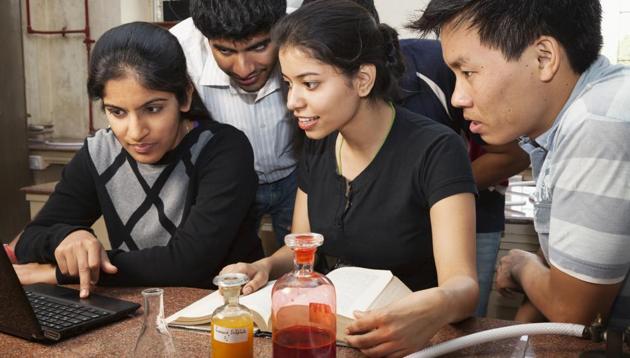Science learning must not remain a memory drill
A basic change in science teaching in schools is required to improve the dismal situation where ‘theoretical practicals’ is becoming the norm. One way for this is to make provision for hands-on experiments at the elementary stage itself
It was scheduled for 3pm. The science teacher had sent an SMS to every student of Class 11, including my friend’s daughter. She was quite excited when the Utkrisht Vidyalaya (School for Excellence) had admitted her last year. The Madhya Pradesh government has identified one such school in every district. Her excitement did not last for long. As soon as the session started, it became clear that teaching at the school was going to be adjusted to the timings of a nearby coaching centre. In fact, daily attendance at the coaching centre was mandatory whereas the ‘Utkrisht’ school was quite flexible. However, the coaching centre has no facility for science practicals. The school, on the other hand, has a science lab. That is why the SMS seemed so important. It said: ‘Come prepared for practical to find the value of ‘g’.’

When my friend’s daughter came back home later that afternoon, I asked her about the practical. She said it was part of a weekly routine. Children are asked to come ‘prepared’ which means they should memorise the various steps mentioned in the book for a practical. At the given time, the teacher asks them to write the practical report in the mandated notebook. The teacher puts his signature along with the date. When an inspector shows up at the school, the practical notebooks have to be ready for inspection. On that day, the school locks its gate so that no child leaves before the inspector has departed. What about the practical? ‘Did you handle any equipment?’ I asked my friend’s daughter. ‘No, no…it was all theoretical,’ she replied. Then she laughed and said, ‘All science practicals in our school are theoretical.’
What purpose is served by such practicals need not mystify anyone who knows our system. The main purpose is to complete a ritual required for Board exams. The term ‘theoretical practical’ sounds like an oxymoron, but it need not convey something unusual. In many schools that have good science labs, practicals are done with honesty, but even these don’t necessarily serve the purpose for which practicals are included in the science curriculum. That purpose is to encourage the young to experiment, but practicals don’t allow or encourage any real experimentation. The outcome of a practical is fully known before the practical starts. There is no challenge or excitement involved in taking the required steps and arriving at a predetermined conclusion. Perhaps the only gain, when a practical is done honestly, is that children learn to handle the equipment.
Along with theory, children are formally examined in the ‘practical’ component of the curriculum at the end of a session. For the Board exam, an external examiner is appointed in order to ensure rigour. However, even this aim is often compromised. Cheating in practicals is never reported, but it is quite common, both among private and government schools. And cheating can take many forms. A former Navodaya student told me how a peon went around the chemistry lab with an attendance sheet after the practical exam consisting of salt analysis had started. The peon whispered the name of the salt given to each student from a list he was carrying. Such discreet arrangements help schools to ensure that all their students score well in practicals.
A basic change in science teaching is required to improve this dismal situation. One step towards change will be to make provisions for hands-on experiments at the elementary stage itself. This is what the famous Hoshangabad Science Teaching Programme (HSTP) did in Madhya Pradesh for nearly three decades from the mid-1970s onwards. Under this remarkable programme, the entire science curriculum at the upper primary stage (Classes 6 to 8) became experiment-based. It spectacularly achieved its aim of cultivating curiosity by permitting every child to experiment. Ultimately, HSTP was allowed to devise its own final exam as well.
But this great innovative project was ultimately throttled and routine science teaching was restored. I had the good fortune to see an HSTP class in action in the early 1980s. The excitement one saw in children as well as their teachers is a memory I cherish to this day. Why wasn’t HSTP kept alive and allowed to grow to higher grades?
HSTP approach was not compatible with the intensely competitive exam system. In small pockets, HSTP still exists, but the larger system has remained committed to science learning as memory drill. The coaching industry has mastered the skill.
Krishna Kumar is former director, NCERT
The views expressed are personal






